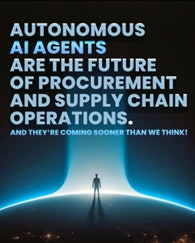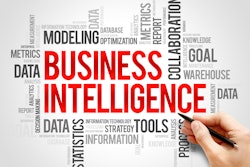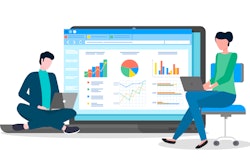
By Subhash Makhija, CEO & cofounder, GEP, a leading provider of procurement and supply chain software, services and consulting to world-class companies.
This isn’t a science fiction — it’s the near future of procurement and supply chain operations driven by autonomous AI agents. As our supply chains, and the world, becomes more complicated and unpredictable, the next generation of AI agents – sometimes called agentic or autonomous AI - will become essential partners, not just tools.
We’re seeing AI play an impactful role in procurement and supply chains already, from automating routine workflows to improving non-technical employee experience. But what comes next is game-changing. Autonomous AI agents are poised to shift from passive support systems to active decision-makers by 2025, revolutionizing procurement and supply chain management. They’ll move past performing basic tasks to making complex, real-time decisions, driving strategic initiatives, and collaborating with suppliers and stakeholders in ways that redefine productivity. We believe that by 2028, one-third of procurement software will integrate agentic AI, with these agents will handle at least 15% of daily decisions independently.
What Makes Autonomous AI Agents So Different?
Unlike traditional AI solutions, which typically automate predefined tasks in a step-by-step manner, autonomous AI agents are designed to act more like independent problem-solvers. They don’t just follow preset rules or require continuous human prompts. Instead, these agents analyze large datasets, learn from interactions, make decisions, and self-correct over time. Equipped with memory engines, they retain knowledge from past activities, allowing them to build context, adapt to new data, and function as more sophisticated collaborators. This depth of interaction allows agentic AI to address dynamic situations autonomously and to provide proactive insights rather than simply executing instructions.
Here’s why this matters. Traditional supply chains are built on historical and incomplete data and human intervention. Today, CPOs rely on unstructured data gathered from suppliers’ emails and news headlines to identify and respond to risks. This model isn’t fit for our world today, driven by tariffs, conflicts, supply shocks, extreme weather, and geopolitics. We need to be far more agile.
Autonomous AI agents, however, don’t rely on static data alone. They analyze ongoing data streams — weather forecasts, economic trends, port closures, and more — allowing them to forecast risks, such as supply disruptions, and to make adaptive decisions autonomously. Imagine an AI agent rerouting shipments or adjusting sourcing strategies in response to a developing storm. When it comes to managing risk in a complex, globalized world, AI will deliver faster and more effective responses than any human team alone.
These agents will also improve supplier relationships and operational efficiency. Today, companies often lack real-time visibility into their extended supply networks, and many are hard-pressed to know their key suppliers’ suppliers. Autonomous AI agents will close this gap by continuously monitoring supplier performance, negotiating terms, tracking delivery status, and even collaborating to reduce carbon footprints, which is crucial for companies to achieve their netzero goals.
From RFx to Contracting, GEP’s AI Agents Will Solve Complexity and Risk
GEP is deploy a multi-agent AI framework within our software platform, in early 2025. Each AI agent within the system is tailored to a specific aspect of procurement, from RFx creation to supplier response management, offer evaluations, and contract awards. For instance, GEP’s RFx Agent creates tailored RFx documents and requests for new or existing product quotes, while the Supplier Response Management Agent ensures supplier submissions are accurate, flagging and providing feedback on missing or incomplete information. The Response Evaluation and Scorecard Agent generates detailed supplier scorecards based on predefined criteria and recommend best-fit supplier. Then the Award Agent completes the process by converting data gathered from the sourcing phase directly into a finalized contract. Our agents will also improve resilience by using predictive analytics to forecast disruptions, analyze unstructured economic and environmental data, and identify alternative sourcing strategies. By automating routine functions, GEP’s AI framework liberates human teams to focus on high-value tasks. GEP’s AI agents will be true allies in the quest for smarter, more responsive supply chains.
To Prepare: Establish Data Integrity and Engage Employees
For AI agents to reach their potential, high data quality is essential. Poor data will compromise even the most advanced AI tools, turning a cutting-edge solution into a flawed system. Before we can begin to adopt these agents, we need to establish consistent data standards, and that data across operations is reliable, clean, and secure. More important, we need to work to foster employee trust, and our teams’ oversight cannot be overstated; these tools are partners to our human teams, not replacements.
We’re entering an era where speed, adaptability, and insight is paramount. To learn more, I invite you to download GEP’s latest paper, Autonomous AI Agents are the Future of Procurement & Supply Chain. |
|














